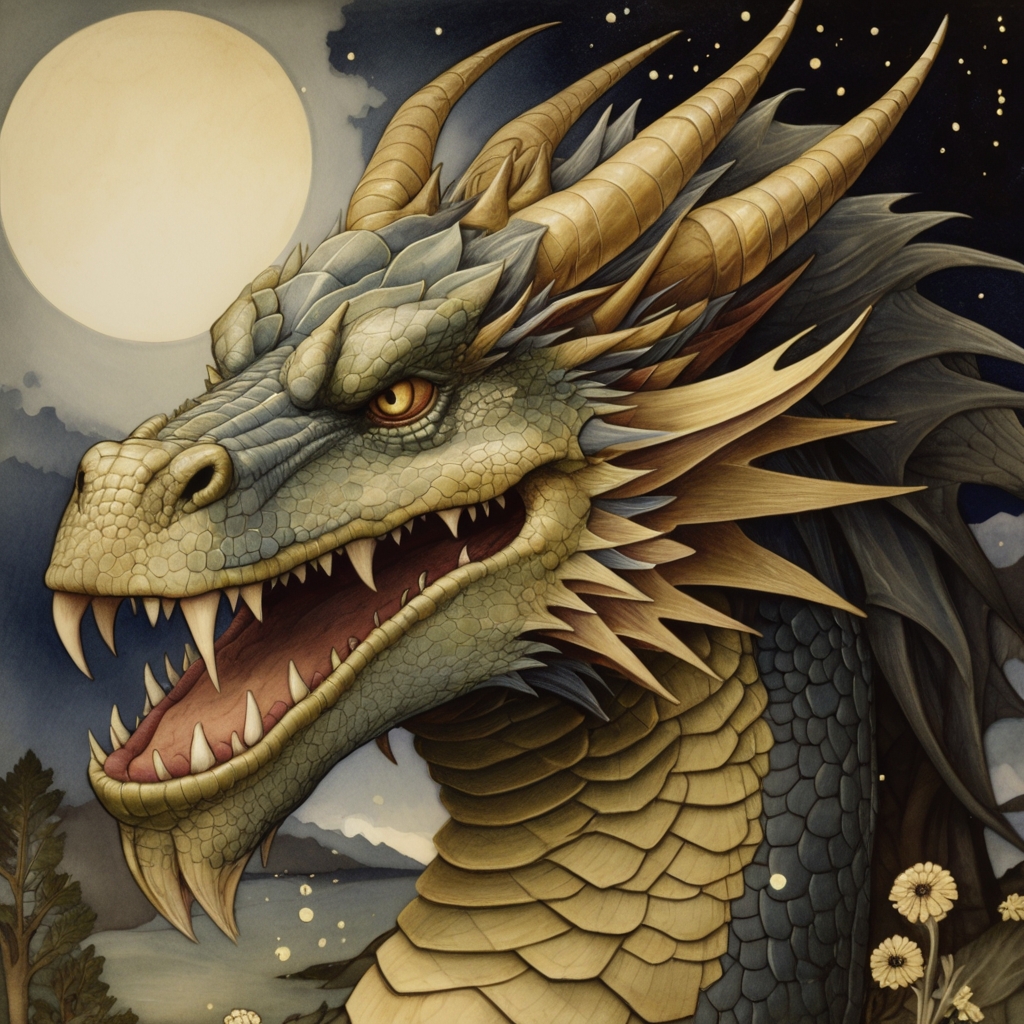ABOUT DRAGONS
Dragons are among the most iconic and awe-inspiring creatures in human mythology, spanning cultures, continents, and centuries. From the towering, fire-breathing beasts of European legends to the wise and noble serpents of Chinese folklore, dragons have captured the imagination of people around the world. But what is it about these mythical creatures that continue to intrigue and fascinate us? Let’s explore the mystery and allure of dragons, their origins, cultural significance, and their lasting impact on our stories.


The concept of dragons has ancient roots, and while the depictions of these creatures vary, their presence in mythologies is widespread. Some of the earliest representations of dragons date back thousands of years, with the first written records of dragon-like creatures appearing in Sumerian texts, ancient Babylonian myths, and Chinese writings.
Interestingly, the dragon myths seem to have evolved independently in different cultures. In Western traditions, dragons are often depicted as fearsome, fire-breathing creatures with massive wings and scales. These dragons are frequently portrayed as malevolent beings who hoard treasures, challenge heroes, and represent chaos and destruction.
In contrast, dragons in Eastern cultures, particularly in China, are usually seen as benevolent, wise, and powerful beings. They are symbols of prosperity, good fortune, and strength, often associated with water and natural elements. Chinese dragons are frequently depicted as long, serpentine creatures able to shape-shift and control the weather.
The differences in dragon mythology are intriguing, yet the shared themes of power, mysticism, and awe are universal. This cross-cultural fascination has helped dragons retain a significant place in global storytelling.
Dragons are more than fearsome beasts; they are symbols deeply woven into the fabric of many cultures’ myths and beliefs.
In Western mythology, dragons are often portrayed as guardians of great treasures or ancient knowledge, representing immense power that must be conquered. Famous examples include the dragon slain by the hero Sigurd in Norse mythology or the legendary Saint George, who slays a dragon to rescue a princess. These dragons symbolise chaos, danger, and the challenges heroes must overcome. They embody fear that stands in the way of growth, wisdom, or success.


In Chinese culture, the dragon is considered a symbol of imperial power and divinity. It is associated with the emperor, often called the “Dragon of the East”, and is considered the embodiment of the dragon’s strength and wisdom. Chinese dragons are thought to bring prosperity, rain, and fertility to the land, playing a central role in many festivals and rituals. The famous Dragon Boat Festival celebrates these ancient beliefs, with dragon boats racing across rivers honouring the mighty dragon spirit.
In other parts of Asia, such as Japan and Korea, dragons also play significant roles in religious and folklore traditions, embodying both protection and the forces of nature.
The timeless appeal of dragons lies in their sheer versatility. Whether they are terrifying enemies or wise mentors, dragons continue to embody the unknown. They represent nature’s wild, untameable forces, the mysteries of the universe, and the potential for personal transformation. In many stories, dragons are not just creatures to be fought but powerful forces that can help characters grow, change, and unlock their inner strength.
Dragons are so enduring in popular culture because they speak to our deepest fears and desires. They challenge us to face the unknown, conquer our struggles, and discover hidden treasures or truths. They are as much about the journey as they are about the destination.


Dragons will likely remain a symbol of fascination for centuries to come. They are among the most complex and multifaceted mythological creatures, able to embody both destruction and creation, fear and wisdom. Whether we encounter them in ancient tales, modern media, or our dreams, dragons hold a special place in our hearts and imaginations.
So the next time you encounter a dragon, whether in a story, a game, or even in your imagination, remember that these mythical creatures are more than just beasts; they are symbols of the eternal struggle between power and wisdom, chaos and order. And, like all great myths, they remind us of the mysteries that still await discovery in the world around us.